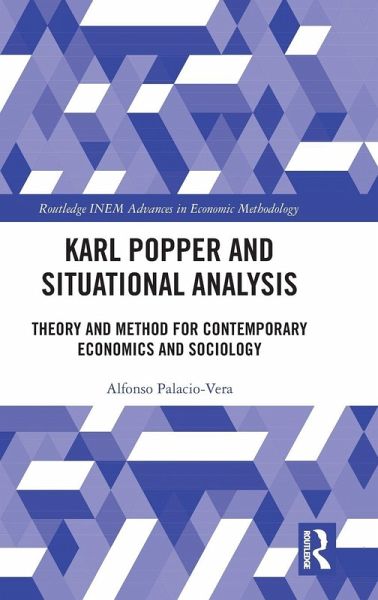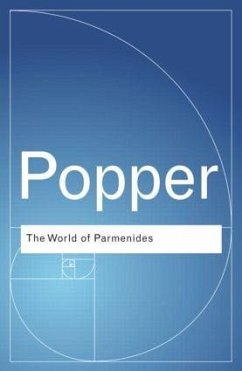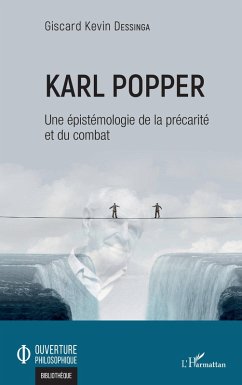
Karl Popper and Situational Analysis
Theory and Method for Contemporary Economics and Sociology
Versandkostenfrei!
Versandfertig in 6-10 Tagen
154,99 €
inkl. MwSt.
Weitere Ausgaben:

PAYBACK Punkte
77 °P sammeln!
'Situational Analysis' represents Karl Popper's methodological proposal for the social sciences. Although it has been widely studied and interpreted, this book argues that Situational Analysis remains underestimated and undeveloped and, if properly reformulated, could yet become a broad methodological framework that encompasses both the 'historical' social sciences and a large section of the 'theoretical' social sciences.The first part of this book develops this idea by returning to Popper's texts. This book calls for both a reformulation of Situational Analysis and a clarification of the stat...
'Situational Analysis' represents Karl Popper's methodological proposal for the social sciences. Although it has been widely studied and interpreted, this book argues that Situational Analysis remains underestimated and undeveloped and, if properly reformulated, could yet become a broad methodological framework that encompasses both the 'historical' social sciences and a large section of the 'theoretical' social sciences.
The first part of this book develops this idea by returning to Popper's texts. This book calls for both a reformulation of Situational Analysis and a clarification of the status and role of Popper's 'Rationality Principle'. This book also develops Situational Analysis by addressing two aspects of the Problem-Situation facing individual actors that are only sketched out in Popper's work: institutions and expectations. The second part of this book utilizes the reformulated version of Situational Analysis to shed light on the core methodological differences across some of the most widespread approaches in contemporary economics and sociology. In particular, by showing that many of these approaches are variants of the reformulated version of Situational Analysis presented in the first part of this book, this book argues that apparent methodological differences across these approaches may be reinterpreted as differences in the way social scientists reconstruct the Problem-Situation facing individual actors.
This book will be vital reading for academic economists, sociologists, philosophers of science, and other social scientists interested in methodology.
The first part of this book develops this idea by returning to Popper's texts. This book calls for both a reformulation of Situational Analysis and a clarification of the status and role of Popper's 'Rationality Principle'. This book also develops Situational Analysis by addressing two aspects of the Problem-Situation facing individual actors that are only sketched out in Popper's work: institutions and expectations. The second part of this book utilizes the reformulated version of Situational Analysis to shed light on the core methodological differences across some of the most widespread approaches in contemporary economics and sociology. In particular, by showing that many of these approaches are variants of the reformulated version of Situational Analysis presented in the first part of this book, this book argues that apparent methodological differences across these approaches may be reinterpreted as differences in the way social scientists reconstruct the Problem-Situation facing individual actors.
This book will be vital reading for academic economists, sociologists, philosophers of science, and other social scientists interested in methodology.














